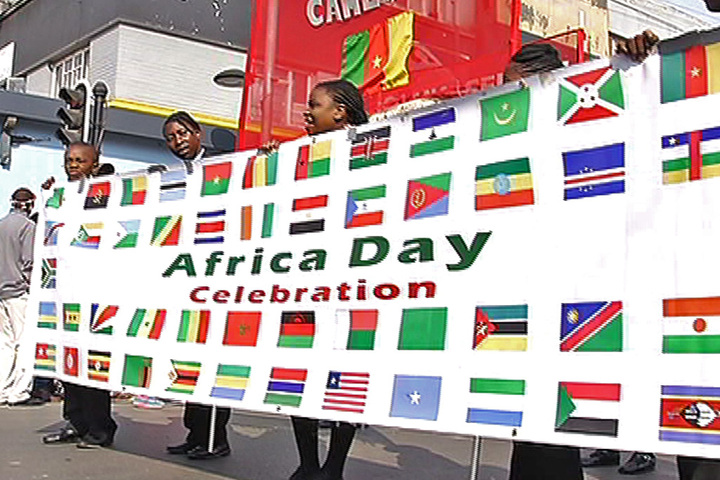
On May 25, 1963, thirty-one African leaders convened a summit meeting and founded the Organization of African Unity (OAU). They renamed “Africa Freedom Day” as “African Liberation Day” and changed its date to May 25.
The founding date of the OAU is also referred to as “Africa Day”.
May 25, is “African Liberation Day”. On this day, many African countries celebrate the hard-fought achievement of their freedom from European colonial powers.
“African Freedom Day” was first conceived during the first Conference of Independent African States, which attracted African leaders and political activists from various African countries, in Ghana on April 15, 1958. Government representatives from eight independent African states attended the conference, which was the first Pan-African conference in the continent.
The purpose of the day was to annually mark the liberation movement’s progress and to symbolize the determination of the people of Africa to free themselves from foreign domination and exploitation.
“Africa Liberation Day” allows Africans all over the continent and the Diaspora to pay tribute to the heroes and heroines of our continent who sacrificed their precious lives to defeat colonialism and apartheid in the protection of sovereignty and human dignity”.
Moreover, “Africa Liberation Day” presents the African people with an opportunity to reflect on the state of the continent and the individual as well as collective roles each one has to play for the realization of Africa’s integration.
For many decades the African people were struggling for the total independence of Africa from colonialism and apartheid, majority of Africans focus on Africa Liberation Day. A desire for political independence.
After decades of “Africa Day”; Fast forward three years ago (2015), the African Union adopted “Agenda 2063”, which is the development Blueprint for Africa and outlines African leader’s commitment to eradicate poverty on the continent.
Agenda 2063 is “. . . both a vision and an action plan. It is a call for action to all segments of African society to work together to build a prosperous and united Africa based on shared values and a common destiny”.
The African Union Assembly last year also adopted the first 10-year plan which implements and makes practical “Agenda 2063”.
While preparing Africa towards the “Agenda 2063”, Africa need leaders to make sure that African youths are groomed academically, economically, socially as well as politically both at home and the Diaspora to enable them to take over leadership of the continent.
To realize the aspiration of “Agenda 2063” Africa should begin to look inward, and develop herself to be amongst in global community. Africa can’t afford to recruit self-serving, lukewarm, vision less, and ‘nitwit fellows’ to occupy seat of leadership. It’s difficult to explain how many of the African nations have reduced to a begging nation, with failed infrastructure and weak institutions.
Individually, Africans must begin to arise above primordial sentiments, nepotistic mindsets and develop deep character that will automatically translate into the kind of leadership we get. Because from amongst African leaders, Africa produced these sets of blurry eyed leaders.
Today, Africa has leaders who are not leading anyone but themselves. They don’t even seem to see things beyond their personal interest, their own pockets. When you talk to them, most of them don’t even know where they are headed. And that’s very dangerous when the drivers don’t know where they are headed. If they themselves don’t know where they are headed, how can the followers know where they are being led? What is the purpose of this leadership? We ask this question because they seem to have failed to define the purpose of their leadership.
Look around you and see the people calling themselves leaders! Are these really leaders?
Africa needs to relook at the issue of leadership in a new way. We can’t call the politicians we have today leaders. Not everyone calling themselves a leader is a leader. These crooks, mercenaries, hyenas, jackals are not fit to be called leaders. Very few of our politicians today qualify to be called leaders. Leaders lead. What we have today are not leaders but individuals who have taken up positions of leadership to enrich themselves, cheat or rape Africa and her people.
When one looks at what makes one a leader, it becomes very difficult to see where leadership lies in Africa. A leader is said to be someone who is in control, gives directions, guidance and headship; is an excellent listener and has good management skills. Of course, there are many correct ways to look at leadership and there is not now, and probably will never be, any complete way. But whatever way we look at it, leadership is very vital to the future of our continent.
And in the end, putting aside all the theories and concepts about leadership, good leadership will be achieved, not by the formality of structures, but by the integrity of the participant and by the willingness of the individuals to work together and be inspired by a larger vision.
By Alagi Yorro Jallow










Recent Comments